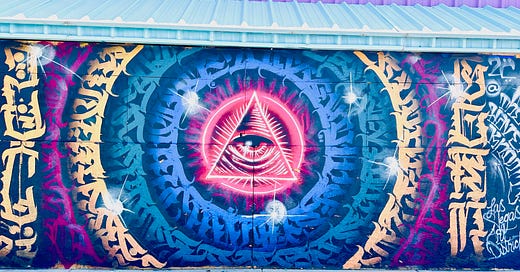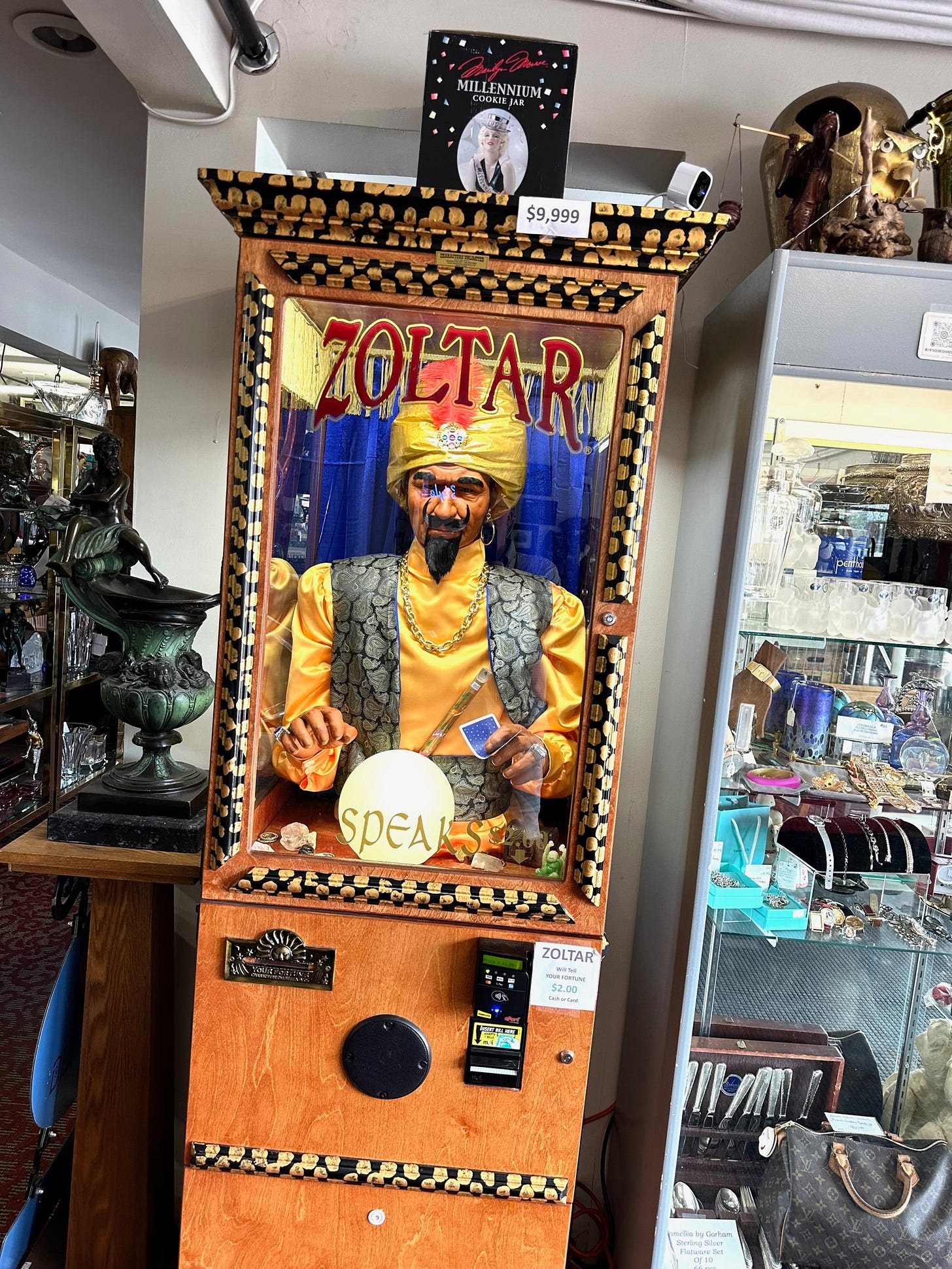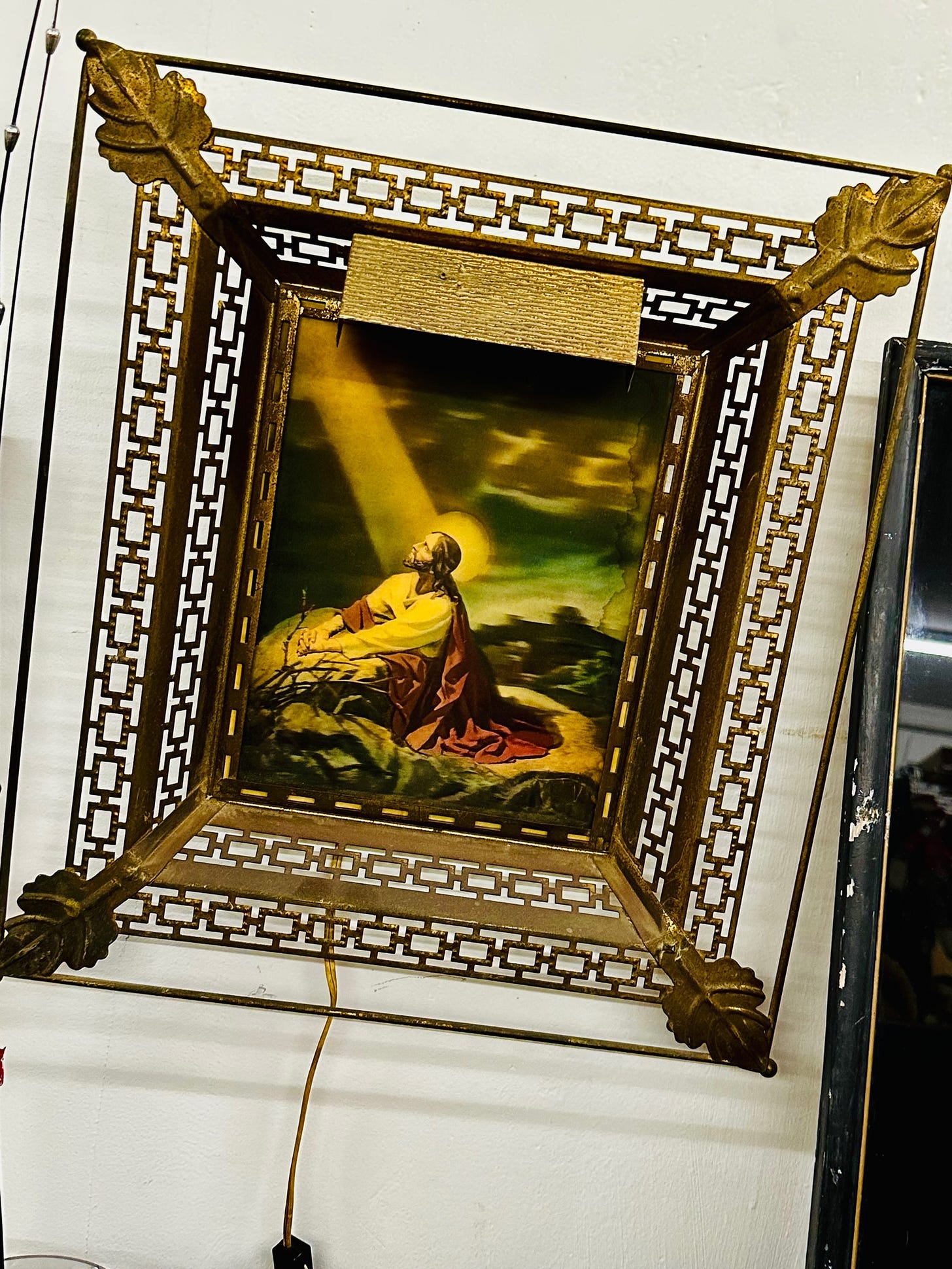In my dreams I’m falling upward—and out.
My head is pounding as I open my eyes in a canned-air capsule of an MGM Grand hotel room—the kind of room that comes with piddly paper-wrapped soap and a skimpy low-flow shower nozzle. I’m mumbling to myself, “What the….”
I continue to lay in bed, frazzled and confused by the long saga I’ve just endured.
I need to focus, Focus, FOCUS.
After having been stuck for what seemed an eternity inside the AI Nexus 9000, I’m up for a tab of Adderall, the euphemistic brand name for pure amphetamine. It’s quite amazing how Big Pharma pulled that one off, addicting adolescents to speed. And people wonder why school shootings have increased 3288.89 percent since the advent of such medications. (ChatGPT provides the exact percentage.)
The Adderall kicks in over a large latte downstairs and I decide I’m done with artificial intelligence, let the AI convention convene without me as I buzz off at high speed in search of old fashioned genuine intelligence, should any still exist.
Trust me on this point: AI is rendering humans lazy and stupid.
I phone Dave, a curmudgeonly taxi driver I met on a trip to Vegas eight months earlier. Dave’s been driving Sin City’s boulevards, avenues, interchanges and overpasses for longer than he can remember. I found his acerbic cynicism a good match for my own take on this dusty desert mirage. On this day he does not disappoint, crustier than an overcooked baguette, snapping at a pedestrian in a no-pedestrian zone then mouthing off at another driver who dares try to cut in front of him as we inch along Tropicana Avenue, snagged in gridlock due to numerous lane closures and roadworks.
The first thing is to get un-stripped.
Scoffs Dave, “The Strip isn’t even in Las Vegas.”
“No?”
“No. It’s in Clark County.”
“I remember you saying so. That’s why I want you to take us [Oscar and me] to the real Vegas.”
The real Vegas is an area now known as Las Vegas Arts District and is squashed between The Strip and the Fremont Street Experience. My parents used to visit this place and pump real silver dollars into one armed bandits, though they would have been much better off just hoarding those same silver dollars, now worth about seventy bucks apiece.
Oscar and I alight on Main Street to take in the sights: colorful murals in every direction; vintage shops on every corner and in betwixt.
Zoltar is for sale, one buck shy of ten grand.
Question: How does Zoltar hold up against ChatGPT?
It takes but two bucks to find out. “Zoltar Speaks” for 30 seconds and a fortune card slides out.
My fortune: “What a joy to look ahead to read into the signs of your future. So much happiness is in store for you that the most brilliantly lighted stars will be put to shame by the brightness of your life.”
I’ll take it!
Zoltar seems to make ChatGPT jealous: “These machines are not based on actual psychic abilities,” it complains in response to my query. “They are engineered to create an entertaining and theatrical experience.”
Well, I’ll take it anyway—so shut up, chatbot.
Moving on, I encounter an old robot from the past. It looks like the type of robot everyone from my generation might have expected from the future but stands forlorn, looking for adoption—most unlikely.
“Rusty?” I whisper in recognition.
It does not respond.
An image of Jesus of Nazareth, once a futuristic hologram, hangs amid an assortment of junk. Its lightbulb is burnt out.
To hell with the convention, Oscar and I are ready to launch home ahead of schedule. Amex Travel obliges with an afternoon flight.
By now I’m craving human assistance, not artificial assistance, as faulty as human beings can be, especially Generation Z. I evade a bank of D-I-Y check-in computers and beeline straight to the Southwest Airlines Help Desk.
“I’m sorry,” I say, “But I’m too old and not technically savvy enough to use those machines and since I just changed my flight I don’t even know the flight number.”
Security is a breeze… until the x-ray scanner red flags my travel bag, signaling a TSA officer.
“Excuse me, sir—would you mind opening your bag?”
I shrug. “Happy to.”
The security officer slips his hands into a surgical glove and rummages through the few articles of clothing I had brought along for this short trip.
He plucks something from within and holds it up. “What’s this?
I can hardly believe my eyes. “It’s the elixir,” I say, as much to him as myself.
“The what?”
“A souvenir from my trip. I think it’s a scepter.” I’m thinking I must have bought it at one of the vintage shops in Old Vegas—probably the one where I ran into Zoltar. “Is there a problem?”
“No. Just checking it’s not a weapon of some kind.”
I shake my head.
A beer at the bar. A slight delay. Boarding commences.
I’m first in line, planning to nail seats in the first row bulkhead.
The gate agent scans my boarding pass. His AI scanner farts.
The gate agent is puzzled. So am I.
He scans it a second time. It farts again. This time more emphatically.
Maybe third time lucky?
No. Fart number three is the most emphatic of all.
Okay, I get it. AI is unamused that I covered an AI convention for a newspaper that no longer exists.
The gate agent hands my boarding pass to another gate agent at a neighboring counter. Meanwhile, others board—and steal my bulkhead seats.
The second agent clacks away at the keyboard of his AI-generated computer, studies the monitor and says, “Your ticket was cancelled.”
“Huh-what?”
“Your ticket was cancelled,” he repeats robotically.
“I did not print this boarding pass myself,” I say. “It was handed to me by a real human ticket agent at your help desk when I checked in. How can it get cancelled?”
He shakes his head. “Well, it got cancelled somewhere between there and here.”
“Well, un-cancel it.”
Seemingly bewildered by such a notion, he shakes his head and says, “You’re probably not going to get on this flight.”
“That’s not very helpful at all,” I say. “In fact, it’s downright nuts.” True Nuts.
There is no such thing as human discretion anymore. Humans do only what they are instructed to do by computers. Period.
So now I’m agitated. And I also completely understand why the news and (anti)social media videos are filled with people wigging out at airports.
“That’s ridiculous!” I rant. “I’ve flown hundreds of times everywhere and NO TICKET I’VE EVER BEEN ISSUED HAS EVER GOTTEN CANCELLED AFTER THE ISSUANCE OF A BOARDING PASS!”
Accustomed to passenger histrionics, he just shrugs.
I show him the email from Amex confirming my flight. For me it’s proof. For him, it’s mystifying. That’s because the AI-driven computer to which he is attuned is omniscient. God-like. And, like Nazi soldiers, just following orders.
Then I have an idea. I pull the scepter from my bag and wave it around like a magic wand.
And just like that, this threshold guardian thinks. He actually thinks to use his own cell phone and connect to something called “SOS,” to which he explains the situation citing my Amex confirmation.
Finally, without further explanation, he prints new boarding passes for me. This time the scanner does not fart and we (Oscar and I) are allowed to claim our (by now, mid-cabin) seats.
“Excuse me, miss,” I say to a female passenger in an aisle seat with her back to me gazing out the window. “Is that seat taken?”
The red-haired passenger turns to face me.
I freeze, astonished, feeling blood draining from my face.







